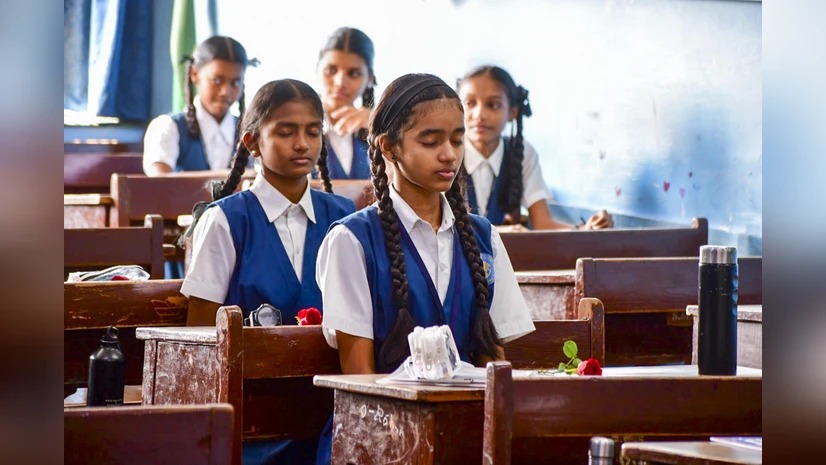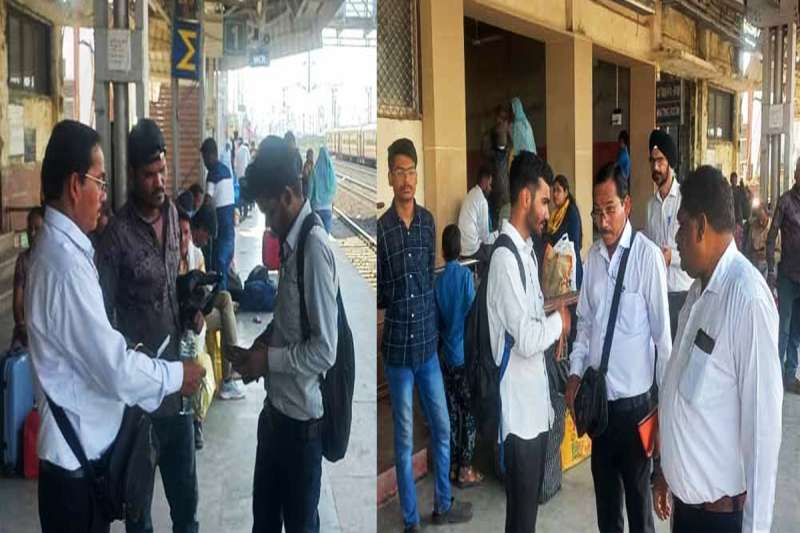V.K. Khanna, C.J.@mdashThese five writ appeals have been filed against a common judgment given by the learned Single Judge on 21.1.94, disposing of all the Civil Rules out of which the present five writ appeals arise and another Civil Rule against which no appeal has been preferred according to the learned Counsel of both the parties.
2. On behalf of the Appellants in all the five appeals, Mr. D.K. Das has appeared assisted by Mrs. A. Devi. On behalf of the State of Mizoram and other State/Respondents, Mr. D.P. Chaliha, learned Advocate General for the State of Mizoram, has appeared along with Mr. A. Sarma.
3. At the outset, it may be mentioned that Mr. D.K. Das, the learned Counsel for all the Appellants in the five writ appeals, has made a statement that Writ Appeal No. 228/94 be made the leading case as he would address only one argument in all the five appeals and has addressed us only on the legal questions which he has raised in all the five appeals.
4. Mr. Das has urged before that the Appellants in these five appeals were appointed in service in the State of Mizoram on ad hoc basis much earlier to the private Respondents in the writ appeals. But the Board constituted under the Mizoram Civil Service Rules, 1977, has placed the names of the private Respondents in the appeals while preparing the seniority list over the Appellants who had been serving in the State of Mizoram prior to the aforesaid private Respondents, Mr. Das has, however, made a statement that it is only in the year 1982 that the Appellants had come in the Mizoram Civil Service Grade II posts and prior to that, the appointment of the Petitioners/Appellants were on ad hoc basis for a fixed period of time. It has, however, been urged that after the coming into force of the Mizoram Civil Service Rules, 1977, the Rules, 1977 in short, the Appellants were entitled to be regularised much earlier to the private Respondents in the appeals and if that process would have been followed, the Appellants would have been placed over and above the private Respondents in the seniority list.
5. Mr. D.P. Chaliha, learned Advocate General for the State of Mizoram, has however made a statement before us that six Civil Rules were heard by the learned Single Judge and an affidavit-in-opposition was filed on Civil Rule No. 565/87 (which was later on transferred to the Aizawl Bench and was numbered as Civil Rule No. 8/90) on behalf on Respondents Nos. 1, 2 and 3 by the Deputy Secretary to the Govt. of Mizoram, Department of Personnel and Administrative Reforms. A copy of the affidavit-in-opposition had been filed before us which will form part of the record and from a perusal of the aforesaid copy, it becomes clear that after the Mizoram Civil Service Rules, 1977 had come into force and after relaxation of the relevant provisions of the aforesaid Rules, 1977, the cases of all the Appellants along with other Civil Service Group B officers, who were also given ad hoc appointment to the duty post of Mizoram Civil Service Grade II, were placed before the Selection Board for appointment to the Mizoram Civil service Grade II along with the Annual Confidential Reports for the relevant period and Integrity Certificates of the officers. The meeting of the Selection Board was held on 7.1.87 in New Delhi and the Board recommended 25 (twenty five) officers including the Petitioners/Appellants for appointment to the Mizoram Civil Service Grade II posts on substantive basis. In paragraph 8 of the affidavit-in-opposition, it has been stated that even if actual vacant posts which occur from time to time were to be filled up, they could only be tilled up from amongst the eligible officers strictly in accordance with the provisions of the Rules, 1977. The Appellants were not having eligibility in accordance with the provisions of the Rules, 1977 as they were not holding any post as contemplated under Clause (b) of Sub-rule (1) of Rule 5 of the Rules, 1977 and it was only after the relaxation which were granted to these officers that they become eligible for being considered for appointment on substantive basis to the Mizoram Civil Service Grade II.
6. A bare perusal of the Mizoram Civil Service Rules, 1977 would show that Rule 5 prescribes two modes of recruitment, i.e., fifty percent of the substantive vacancies which occur from time to time in the authorised permanent strength of the Service shall be filled by direct recruitment in the manner specified in part IV of the Rules; and the remaining such substantive vacancies shall be filled by selection in the manner prescribed in part V of the Rules from amongst the officers who hold substantively any of the posts mentioned in schedule II of the Rules, 1977. Admittedly, part IV has no application to the cases of the Appellants and their recruitment has been done under part V. For adjudication of the controversy raised in the present appeals, it will be relevant to quote Rule 13 of the Rules, 1977 which runs as follows:
13. CONDITIONS OF ELIGIBILITY AND PROCEDURE FOR SELECTION:
(1) The Board shall consider from time to time the cases of officers eligible under Clause (b) of Sub-rule (i) of Rule 5, who have served in the respective cadres or posts as the case may be for not less than two years and prepare a list of officers recommended taking into account the actual vacancies at the time of selection and those likely to occur during a year. The selection for inclusion in the list shall be based on merit with due regard to seniority.
(2) The names of persons included in the list shall be arranged in order of merit.
(3) The list so prepared shall be forwarded by the Board to the Administrator.
7. From a perusal of Rule 13(1), it becomes clear that even if the cases of the Appellants are accepted, they came to occupy the posts which would entitle them for substantive appointment only in the year 1982. Rule 13(1) specifically prescribes that for substantive appointment, the officer must have rendered at least two years'' service and only thereafter he will be entitled to come in the field of eligibility. On the own case of the Appellants, therefore, they became iligible only after 1984 for selection in the substantive posts. The Appellants in all the five appeals, according to the State/Respondents, had been granted relaxation and their cases were sent to the Selection Board in the year 1985 and, therefore, the Appellants in the five appeals cannot be said to have suffered because of the fact that the Selection Committee had not sat every year for making substantive appointment to the Grade II posts of the Mizoram Civil Service as the cases of the Appellants in the five appeals were placed before the Selection Board under Rule 13 immediately after two years'' service had been completed by them.
8. The next question which arises for consideration is as to whether the previous service which had been rendered on other posts on ad hoc basis would be counted for the purposes of determining the seniority. Rule 13(1) has fixed the criteria for the selection as "merit with due regard to seniority". Rule 13(2) requires the Selection Board that the names of the persons included in the list shall be arranged in the order of merit. From the aforesaid, therefore, it is clear that when substantive appointment is being made under Rule 13, in view of the provisions of Rule 5(1)(b) of the Rules, 1977, the persons will be appointed substantively only on the basis of the criteria laid down under Rule 13. In case any of the Appellants did not possess the requisite merit according to the Board, his case would have even been rejected by the Board. The Board was required to consider the merit of the candidates of course having due regard to the seniority and thereafter prepare a list which was to be prepared by arranging the names of the persons in order of merit (emphasis provided). It is, therefore, clear that the list which has been sent by the Board has been prepared in accordance with the provisions of Rule 13 and the argument raised by the Appellants that their services on posts which they were occupying earlier even though those posts may not come within the preview of the posts mentioned in schedule II to the Rules 1977 should be taken into account cannot stand as, admittedly, the Appellants were not holding such posts which had been mentioned in schedule II to the Rules prior to their names being placed before the Board and also because their names were placed before the Board after relaxation of the Rules had been granted on their favour.
9. Mr. D.K. Das has, however, controverted the argument raised by Mr. D.P. Chaliha, the learned Advocate General for the State of Mizoram, that in the case of the Appellants, relaxation had been granted to all five Appellants. This argument of Mr. Das would take out the live Appellants from the Held of eligibility in-as-much as they were not holding substantively any of the posts mentioned in schedule II to the Rules, 1977. Moreover, even if the case of Mr. Das is accepted, the Appellants occupied the Grade II posts on ad hoc basis in 1982 and thus to come in the field of eligibility, they had to complete two years'' service and would become eligible for consideration in the year 1985. In the year 1985, as stated above, they were considered by the Board and thus, no prejudice had been caused to the Appellants on that score.
10. Mr. D.K. Das has also urged before us that all the private Respondents in the appeals were not eligible under Rule 13 of the Rules, 1977 at the time when their names were sent to the Selection Board. We have carefully perused the averments made in the Civil Rules which have been placed by Mr. Das before us and it has not been shown to us that any material had been filed in the Civil Rules showing that the Respondents in the appeals who have been placed senior to the five Appellants did not possess the requisite qualifications so as to be in the field of eligibility for being considered for substantive appointment by the Board under Rule 13 of the Rules, 1977. No other argument has been raised before us.
11. For the reasons stated above, we find no merit in these five appeals which are accordingly dismissed. However, looking to the entire facts and circumstances of the case, the parties shall bear their own costs.
A copy of the judgment will be kept in records of all the writ appeals.

